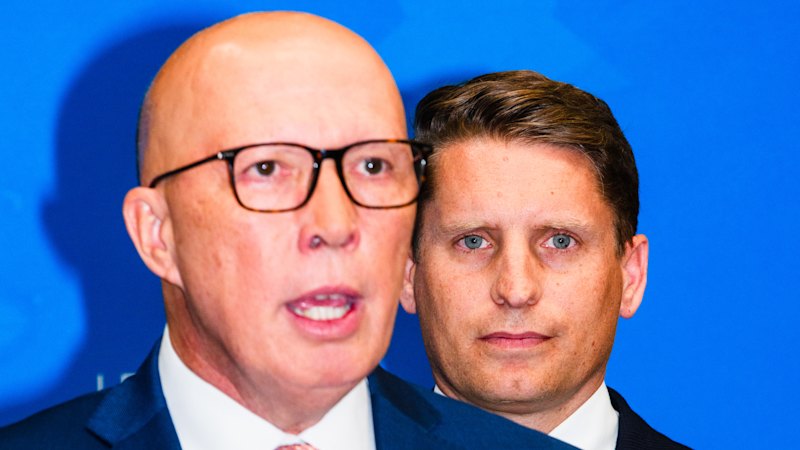
Peter Dutton, the former leader of the Australian opposition, has laid significant blame for the Coalition’s recent election defeat on Liberal MP Andrew Hastie. In confidential submissions to the party’s election review, Dutton accused Hastie of going “on strike” and failing to fulfil crucial policy responsibilities. This revelation follows Hastie’s surprising resignation from Sussan Ley’s frontbench, which has further fueled speculation about her leadership as members of parliament prepare to return to Canberra.
Dutton’s allegations point to a broader dissatisfaction within the party regarding its performance in the lead-up to the election. According to sources familiar with Dutton’s submissions, he argued that Hastie’s absence and lack of media engagement during the previous term hindered the Coalition’s ability to effectively challenge the Labor Party. Dutton was particularly critical of Hastie’s failure to complete a review on Defence Department procurement, which was intended to underpin the Coalition’s defence policy.
Hastie, who previously served as the Shadow Minister for Defence, did not deliver the findings that were anticipated to bolster the Coalition’s election strategy. The opposition’s defence spending policy, announced late in the campaign with a proposed budget of $21 billion, faced criticism for its timing and lack of detail. Dutton contended that Hastie’s inaction contributed to the inadequacies of this policy announcement, leaving the Coalition vulnerable to Labour’s critiques on defence matters.
The context of Dutton’s criticisms highlights a shift in the party dynamics. He and Hastie were once aligned as prominent figures within the Right faction, but their relationship has deteriorated over time. Disagreements over issues such as the Ben Roberts-Smith saga have widened the rift, leading to differing views on party strategy and leadership.
Hastie has responded to Dutton’s comments by defending his record and shifting the responsibility for the delayed defence policy to Dutton and his office. He stated, “Only Peter Dutton and those who were in his office can explain why the defence policy was kept back until the final fortnight of the campaign.” Hastie emphasized that the anonymous criticisms appearing in the media stem from internal strife rather than genuine concerns about his performance.
As the Coalition grapples with its internal conflicts, the ramifications of Hastie’s resignation extend beyond just policy discussions. His move to the backbench positions him as a potential alternative leader, backed by a faction of conservative MPs disillusioned with Ley’s leadership. This shift opens the door for a potential leadership contest, particularly between Hastie and fellow Right faction member Angus Taylor.
While some within the party rally behind Ley, others express concern over the current state of the Coalition. Frontbencher Melissa McIntosh acknowledged the challenges ahead, stating, “It’s really tough with developing policy again, in some respect, from the very beginning. People rejected us at the last election.”
The Labor Party has seized on the opportunity to critique the Coalition’s internal divisions. Assistant Minister Julian Hill remarked on the party’s dysfunction, suggesting that Hastie’s actions reflect a broader turmoil within the Coalition. In this context, the future direction of the party may hinge on how effectively it can address these internal challenges and present a cohesive front to the electorate.
As the election review continues, Dutton’s submissions may have lasting implications for members like Hastie, as well as for the Coalition’s overall strategy moving forward. The party’s ability to unify and develop a compelling narrative will be crucial as they prepare for the next electoral contest.






